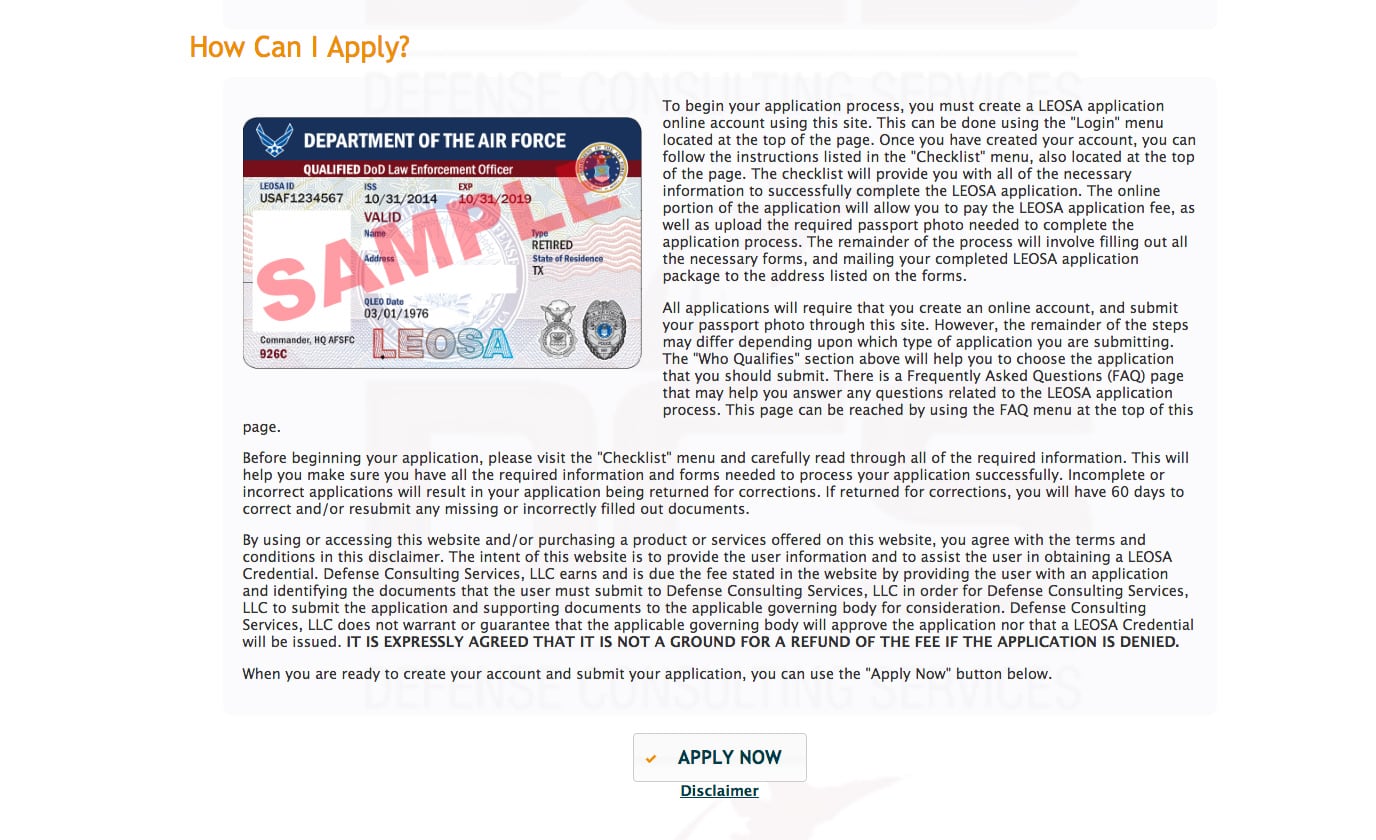Even as the debate rages on about whether, where and when service members should be allowed to carry weapons, some troops already are permitted to carry concealed handguns even if their particular state does not have a concealed-carry law.
The Law Enforcement Officers Safety Act of 2004, a little-known federal law that was extended to apply to military personnel in 2013, already gives credentialed troops — in addition to military police — authority to carry weapons while off duty in all 50 states and the District of Columbia, according to a U.S. military official.
As with their civilian counterparts, the LEOSA is designed to give some service members who have another day job, such as National Guard or Reserve members who work in law enforcement, the ability to carry personal weapons to their next location without violating other DoD or federal laws.
To qualify to carry a concealed weapon, service members must be actively serving in law enforcement or have 10 or more years' experience in law enforcement.
When it comes to determining threats, LEOSA-credentialed individuals are considered to have skill sets that go "beyond the average citizen," the military official told Military Times on the condition of anonymity.
So far, the Air Force is the only service making headway in contracting out applicationsto get licenses under LEOSA for service members who are actively serving military members under Title 10 and Title 32, as well as separated or retired members as long as they meet the requirements and are cleared by both the Air Force and the contractor, Defense Consulting Services.
Frank Crowder, president of Defense Consulting Services, told Military Times that the Air Force has issued about 1,500 LEOSA credentials to its active, Guard and Reserve members and retired or separated members, and since December, more than 8,000 accounts have been created by individuals looking to apply for the credentials.
However, a LEOSA license does not allow members to carry handguns on military installations or in any federal facility unless their official duties require it, the military official said. Installations regulate who can carry weapons on base in accordance with DoD Directive 5210.56, the Defense Department policy that restricts that permission only to law enforcement and security personnel, those guarding prisoners, and those undergoing firearms training.
That will not change "unless the services came on board and say, ‘Here is a new service-wide policy allowing guns on bases,’ " the military official said.
The LEOSA rules
According to the LEOSA application website, applicants must:
- Have experience in arrest or authority to apprehend pursuant to section 807(b) of Title 10 of the U.S. Code, also known as Article 7(b) of the Uniform Code of Military Justice; Or have 10 or more years' experience as a law enforcement officer.
- Be authorized by their organization to carry a firearm.
- Regularly qualify in the use of a firearm.
- Not be prohibited by federal law from receiving a firearm.
- Submit a commander's endorsement letter validating that they meet standards established by their service branch and DoD.
Once an application is approved, members must carry a photographic ID that "identifies the employee as a police or law enforcement officer of the agency," as well as a photographic ID "that identifies the person as having been employed as a police or law enforcement officer." Common Access Cards do not qualify.
LEOSA does not allow members to carry their military-issued weapons, and it does not allow carry of weapons such as machine guns, explosive devices, or shotgun- or rifle-type weapons.
The military official also noted that a valid LEOSA license becomes null and void if a service member had been drinking and "something were to happen."
Individuals who have separated or retired from the military still must have had the same law enforcement experience and be in good standing with the service branch issuing the LEOSA license. They also must take a few training courses in their firearm so as to not violate state or federal laws.
LEOSA does not violate the Posse Comitatus Act, which generally forbids military personnel to act in a law enforcement capacity, because the military in these instances is not enforcing civil law and LEOSA does not create a separate law enforcement entity to act on behalf of the government.
The official said National Guard bases have been somewhat more welcoming to the LEOSA program.
How might LEOSA help?
In the wake of the Chattanooga shootings — with several governors having ordered National Guard personnel to carry weapons on bases and in recruiting stations — if a potential criminal sees someone carrying a weapon, "it could totally change the scenario," the official said.
"If I was an off-duty military policeman, and was authorized to carry on the Chattanooga Reserve station area, then I could have protected myself and those people around me," the official said.
Any service member who meets the qualifications can apply through their state for a LEOSA license, including Navy, Marine Corps and Coast Guard members whose services do not have application programs of their own.
At its bottom line, the law allows qualified service members to carry concealed weapons in states in which it is "extremely difficult to obtain civilian permits," such as Hawaii and New Jersey, according to Eric Sanders, administrator of the Air Force's Law Enforcement Officer Safety Act Facebook page.

Any service member who meets the qualifications can apply through their state for a LEOSA license, including Navy, Marine Corps and Coast Guard members whose services do not have application programs of their own.
Photo Credit: Air Force
The Army is
currently
looking into signing up a contractor to issue LEOSA credentials, similar to what the Air Force does, Sanders said.
When LEOSA was extended to service members in 2013, Sen. Patrick Leahy, D-Vt., said the law gives law enforcement officers "the peace of mind that they are protected wherever they may be."
Leahy said qualified service members "are no less deserving or worthy of this privilege."





